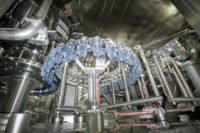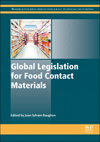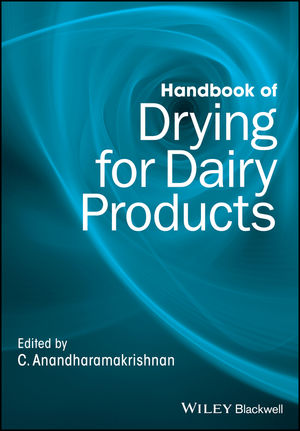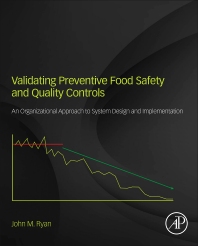Case Study
Indian manufacturer ITC partners with Sidel for complete aseptic PET line
The new line helped the company achieve many firsts.






Kolkata, India-based ITC Ltd. introduced a new range of milk-based drinks with fruit pieces while expanding its juice portfolio with a variety of premium 100% Indian fruit, 0% concentrate and 0% preservative juices. With both launches, the company trusted Parma, Italy-based Sidel’s proven expertise in aseptic packaging.
ITC invested in a complete line that features the first dry preform sterilization in India. Besides helping the company gain greater productivity and flexibility, Sidel designed and tested its three new PET bottle formats for absolute food safety and powerful packaging differentiation on retailers’ shelves.
ITC is a leading company in the Indian market, with a gross sales value of $10 billion and a diversified portfolio covering many industry sectors, including the food, beverage and packaging sectors. This innovation-driven company applies a holistic approach of “integrated crop engagement” to its products, thus meeting the most stringent international food safety standards. In addition, ITC has received several certifications for its organic and sustainable farm practices.
Surfing the healthy consumer wave in India
Indians increasingly are looking for better-for-you beverage options that offer added nutritional benefits. Busy and stressful lifestyles are becoming more common for the Indian population. Indians are often are looking for convenient ways to cope with their time constraints and are willing to pay a premium for so-called “naturally healthy” beverages in small formats.
Recognizing this shift in consumer preferences, ITC recently decided to expand its product range to include liquid dairy products. They launched Sunfeast Wonderz Milk, a milk-based drink bottled in PET. Available in 200-milliliter and 300-milliliter formats, the line is offered in four different flavors: Vanilla Milkshake, Mixed-fruit Milkshake, Mango Milkshake and Badam Milkshake.
ITC also added a portfolio of premium not-from-concentrate juices with source-certified premium fruits to its B Natural brand. The new offerings make ITC the first fruit beverage brand in India to provide a portfolio of source-certified fruit beverages with 100% Indian Fruit, 0% Concentrate and without any preservatives.
To introduce these new products, ITC needed a highly flexible PET packaging solution.
“Strengthening innovation across the organization is a key business imperative for us in these times of rapid business change and heightened competition. It also ensures that we enlarge our market share, create brand differentiation and are future-ready,” explains Rajesh Ponnuru, category manager, juices and dairy at ITC.
Much more than a packaging innovation
The aseptic complete line project for ITC’s expanded nutritional portfolio marked a first in many ways. It was the first time that ITC partnered with Sidel, the very first time ITC entered the dairy-based beverage market and the first launch of ultra-high-temperature milk-based drinks with fruit pieces in India — leveraging the benefits of aseptic PET production with dry preform decontamination.
“Our global leadership in this field, based on more than 40 years of expertise and more than 150 references of our Aseptic Combi Predis installed worldwide, was also a key driver for ITC’s decision, further strengthened via the opportunity of taking care of the process phase through Tetra Pak Processing System (TPPS) technologies,” says Gaurav Kumar, project manager execution, global key accounts at Sidel.
Ponnuru says ITC is proud to be the first company in India to “leverage the benefits of aseptic PET production with dry preform decontamination.”
“This unique system perfectly supports the complete aseptic PET solution Sidel provide to us, offering flexibility, sustainability and efficiency. Plus, the Predis system uses no water and very [few] chemicals during production,” he adds.
Expert advice with every step
ITC chose PET because this packaging material facilitates the creation of more innovative and functional packages, thus helping the leading Indian player surf the rapid changes that are happening in the local market by gaining a competitive edge through product differentiation. The latter aspect was especially important for ITC, as the majority of milk products in the country are packaged in pouches, glass bottles and cartons.
Bottled in PET and decorated with colorful sleeve labels, the B Natural and Sunfeast products immediately gained a distinctive look and feel while providing an enhanced brand experience, therefore receiving a very positive response from local consumers.
As ITC was unfamiliar with aseptic PET production, Sidel provided them thorough advice along every step of the supply chain.
“The experience they have shown around packaging, beverages and raw materials was key in winning our trust,” says Ponnuru.
ITC visited Sidel’s center for packaging expertise in Octeville-sur-Mer, France, multiple times to check the new bottle designs. The packaging was developed in two main shapes — round and squared. The latter represented another milestone: the first squared PET beverage bottle offered to Indian consumers.
Moreover, Sidel’s liquid package interaction laboratory ran shelf-life tests on a number of juice and milk-based recipes to simulate real-life distribution conditions and ensure the products’ quality, safety and organoleptic properties.
The resulting insights helped ITC decide which recipes to launch on the market and which PET barrier material to choose. The goal was to protect its dairy drinks and juices against microorganism growth and alterations caused by the effects of light, oxygen and temperature. To meet the highest food safety standards and ensure a six-month shelf life, Sidel’s packaging scientists recommended that ITC use an O2 PET barrier for its milk-based product range and an O2 combined with a light barrier to protect its 100% organic juices.
“To find out more about aseptic PET production with dry preform decontamination, we decided to visit a similar installation in Indonesia. During this visit, we had the opportunity to experience the Aseptic Combi Predis in action and talk with operators,” says Ponnuru.
Based on this positive experience, ITC placed its order for the Sidel complete aseptic PET line. The equipment includes TPPS technologies and, as the heart of the line, the Aseptic Combi Predis complemented by Capdis — Sidel’s dry cap decontamination system.
The line also features a RollQuattro labeller, a sleever, packing and stretch wrapping systems, a PalKombi palletiser and an efficiency improvement tool.
The aseptic PET complete line — operational since early 2019 — was installed in a new area of the ITC production site in Kapurthala, India, and laid-out to account for production operations and raw material logistics. It ensures the highest level of ease of operations and maintenance, hygiene and food safety, while offering outstanding flexibility to switch easily from one product to another.
Looking for a reprint of this article?
From high-res PDFs to custom plaques, order your copy today!











